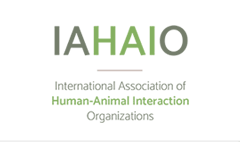Abstract
Introduction: The incorporation of animal-assisted services is an emerging field of occupational therapy. There remains varying levels of involvement and knowledge of what is involved in animal-assisted services among Australian occupational therapists. The profession of occupational therapy acknowledges that competence as a clinician requires appropriate education and knowledge guiding clinical decision making.
Research Question: This study aimed to explore the understanding and role of Australian occupational therapists including animal-assisted services in their practice, as well as the changes required to support future service delivery.
Methods: A cross sectional survey was conducted online. Participants were recruited through a digital mailing list, snowball sampling, and through a link published in the professional association newsletters. The survey consisted of short and multiple-answer questions and a 5-point Likert scale to identify therapist understanding and engagement in animal-assisted services and future practice supports needed. Data was analyzed using descriptive statistics. Open-ended responses were analyzed using content analysis.
Results: A total of 53 participants completed the survey. Approximately 50% of participants identified having some engagement in animal-assisted services; however, most acknowledged having low to moderate understanding of the field. Across all categories, participants identified that the key barriers to fulfilling their role within animal-assisted services included insufficient training and lack of understanding of the role. The top priorities to support occupational therapists in animal-assisted services included risk assessments, practice standards, and ethical guidelines for practice.
Recommended Citation
Hill, Jessica; Driscoll, Carlie; and Pearse, Kelly
(2024)
"Animal-Assisted Services and Occupational Therapy within an Australian Context: A Survey Study,"
People and Animals: The International Journal of Research and Practice: Vol. 7
:
Iss.
1,
Article 7.
Available at:
https://docs.lib.purdue.edu/paij/vol7/iss1/7


